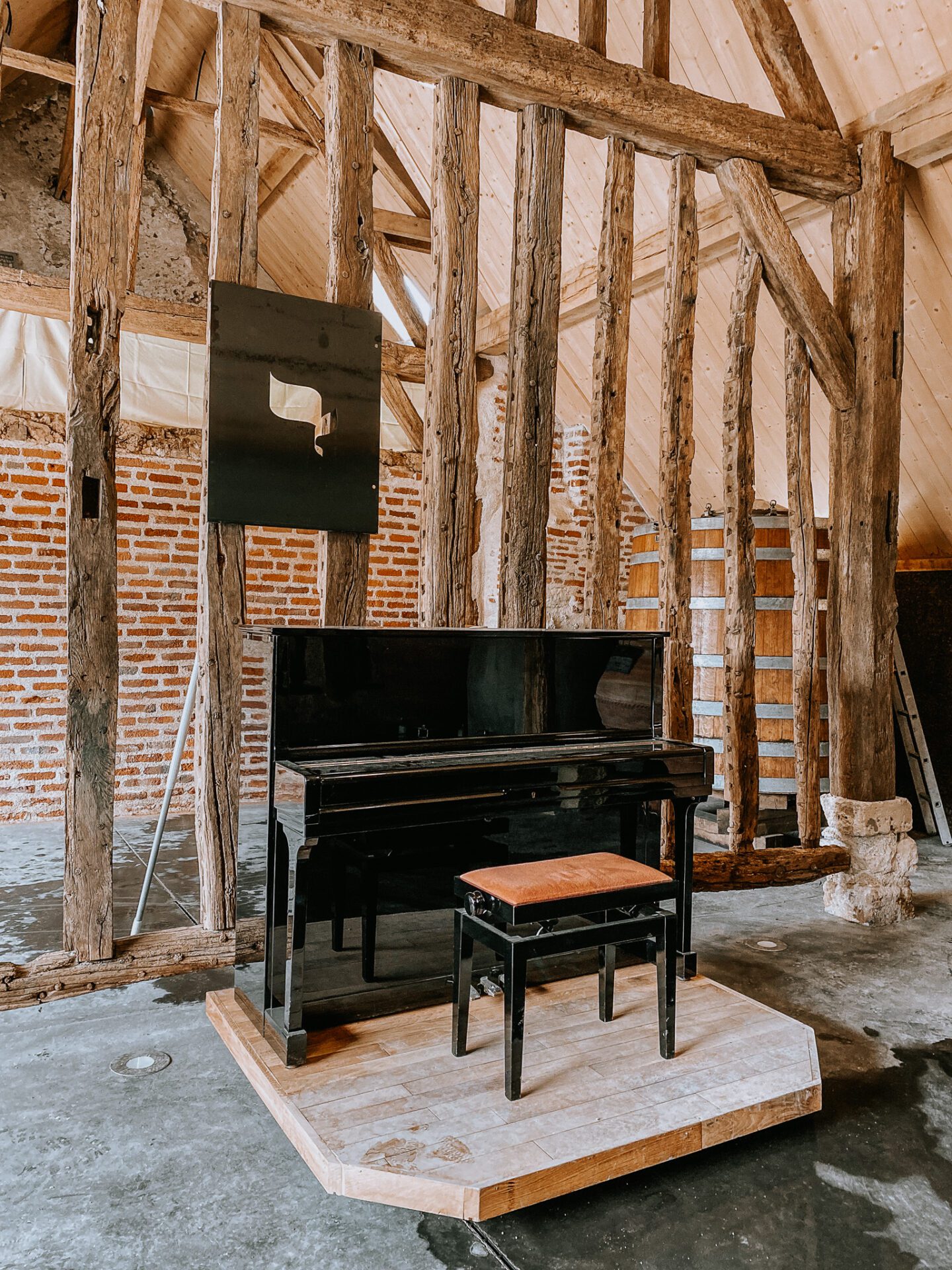
I had the chance to meet with Coralie Delecheneau from La Grange Tiphaine, a dynamic winery operating since 2002 in the appellation of Amboise Touraine. It was a pleasure to meet with her and get inspiring answers to all of my questions, not to mention having the opportunity to taste their deliciously diverse portfolio.
La Grange Tiphaine is located about 2.5 hours south-west of Paris along the Loire river, with half of the vineyard in Amboise, with the Touraine appellation, and half of the vineyard in Montlouis and Montlouis-sur-Loire, with the 100% Chenin appellation. This perfectly situates the vineyard in an area that allows for a wide range of different grape varieties to experiment with and naturally provides a diversity often missing from other winery portfolios. The primary cépage of La Grange Tiphaine is Chenin, however the area also nurtures Sauvignon Blanc grapes and, in terms of reds, Malbec (or Côt), Gamay and Cabernet Franc. The local climate, a key factor in the end result of vine harvests, is very gentle with sweeping winds flowing along the Loire river and reaching the heights of Amboise, cooling down the hot summers while maintaining mild winters.
After Coralie gave me an introduction to the area, climate and grape varieties they use, I really wanted to dive into what makes La Grange Tiphaine and its wines unique. Starting with the estate’s history, Coralie explained the following:
‘La Grange Tiphaine is first a family estate. My husband took over from his father in 2002 and I joined him in 2008. So it’s been a long-term generation estate and a long time ago it was a really poor area with a lot of diversity with animals, with land, with vines, with woods and with old buildings, so when Damien, my husband, took over he started with only 9 hectares of vines and now we work with 16 hectares. We renovated all the buildings, we did a lot of work to have very beautiful vineyards and areas, a nice garden with flowers everywhere and sculptures in the vines. We did a lot of work to have a very beautiful and sustainable area, a place both to live and to work.’
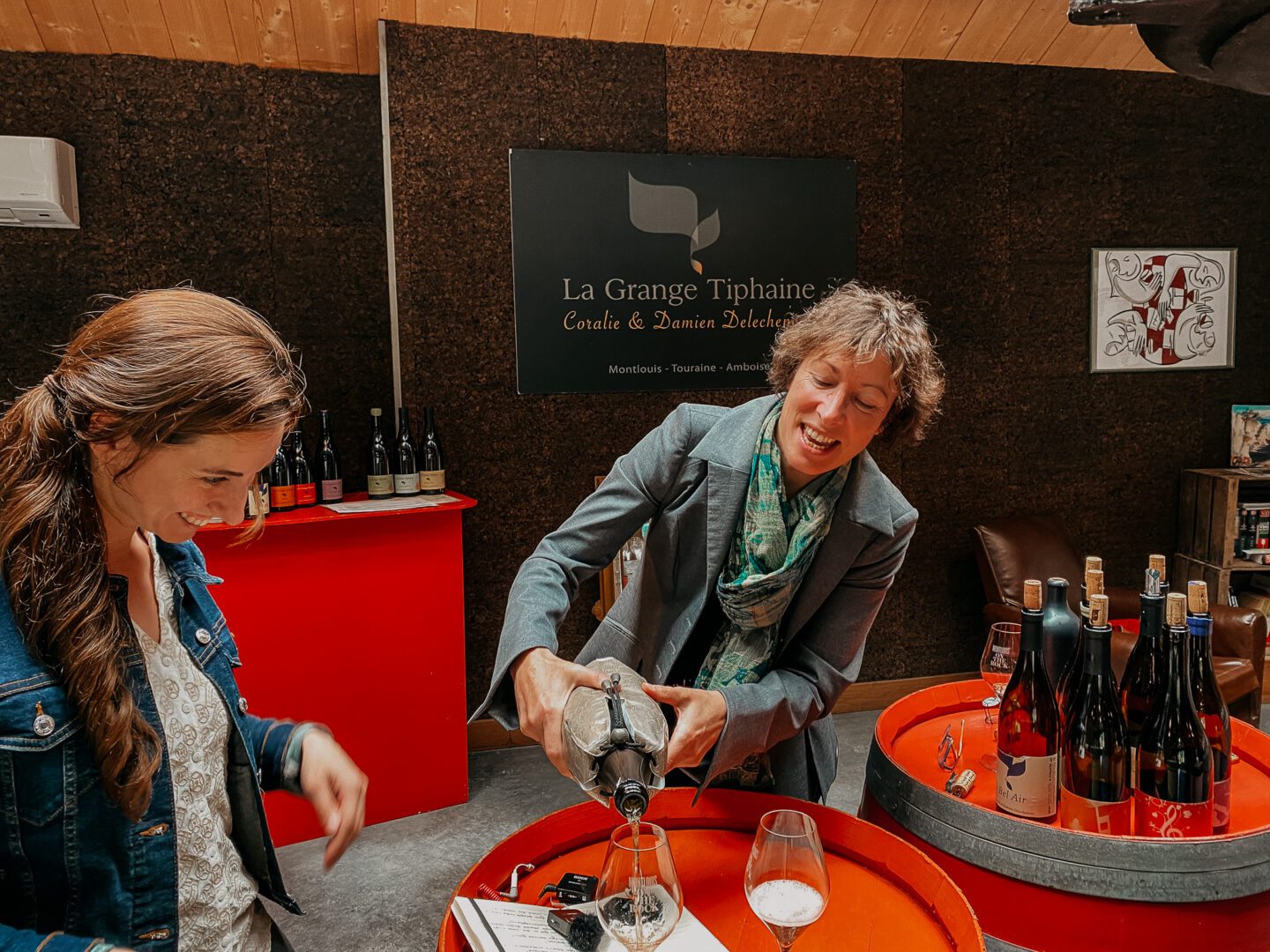
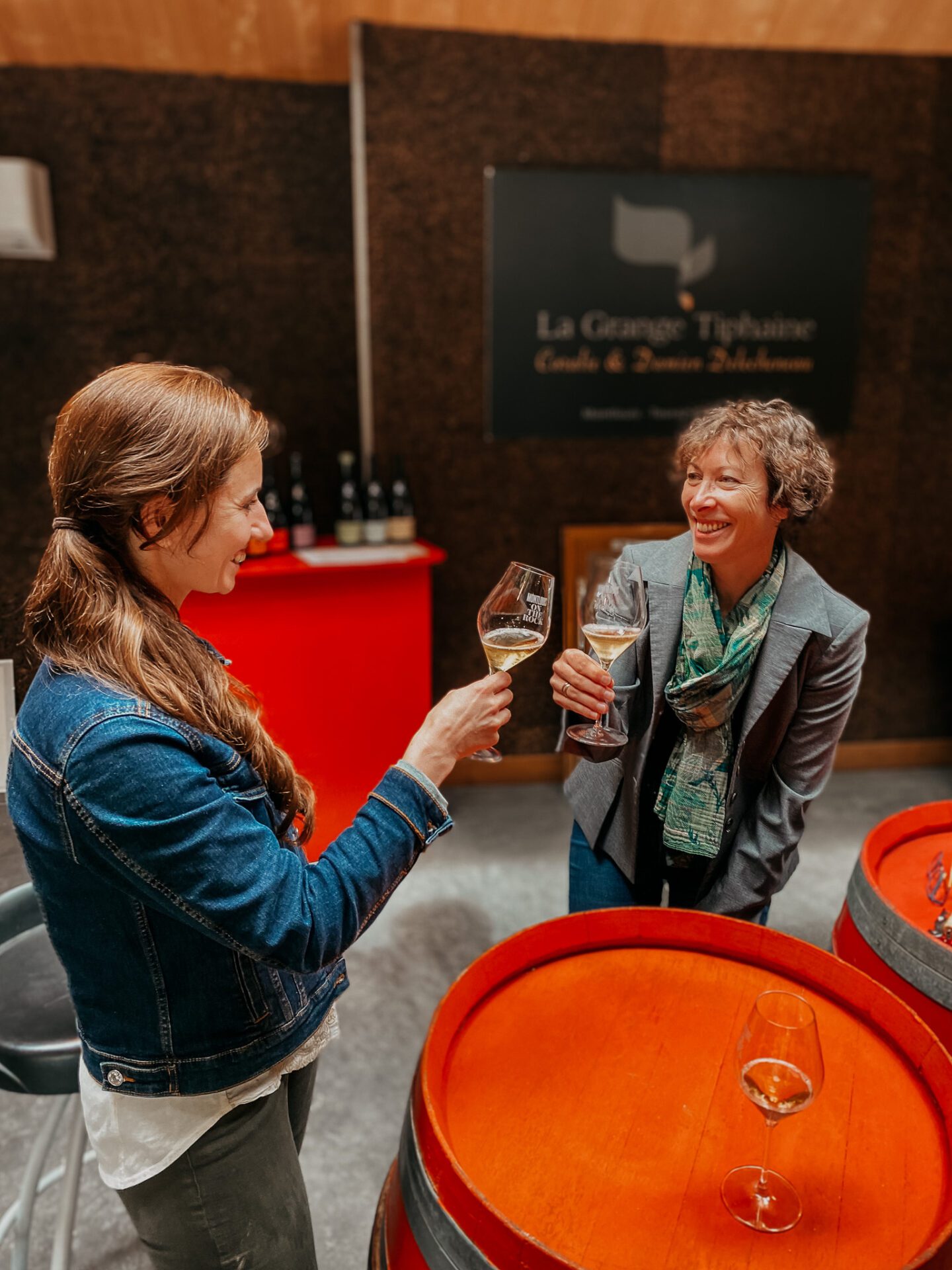
When walking around the vineyard, you feel exactly what Coralie described: the influence of art and creativity, not to mention music. During our walkaround I was pointed to the oldest building in the area which had a piano in the centre with different vessels of wine. I was intrigued in this curiosity and wanted to learn more:
‘For us, music is evident. Because we are musicians, we are in love with all kinds of music and also playing music is exactly the same tough and enjoyable job as working in the vineyard and making wine. Because, in fact, when you play music you do a lot of small exercises for your fingers, for your breath, with your body, with your techniques and you need to train every day to be able to play and make music that seems to be very easy. And winemaking, vine growing, is exactly the same. You have plenty of small different tasks to do that can be boring, that can be tiring, but, again, you make a wine and people think it is so easy to make! It is just grapes that you press, that you ferment, that you put in a bottle and that’s it, but in fact it is much more complex than that. For us, the parallel, the similarity between winemaking and playing music is evident.’
This perfectly encapsulates what I believe about the juxtaposition between art and science, that is evident in so many things that we do but especially winemaking, where creativity and science meet. Using Chenin as a grape, which Coralie and Damien do, reveals the versatility possible in wine and reveals the identity of the winemaker. Coralie explained that the grape type Chenin Blanc is something she discovered when she moved to Amboise, having previously lived in Alsace and studied in Champagne. She described this discovery as ‘the best surprise of my life’, because of how interesting the variety is and how different the vines and harvesting techniques related to it are. In La Grange Tiphaine’s range of Montlouis wines, they have 6 different wines which are taken from 4 different pickings, something which happens nowhere else with no other type of grape, making Chenin, in Coralie’s words: magic.
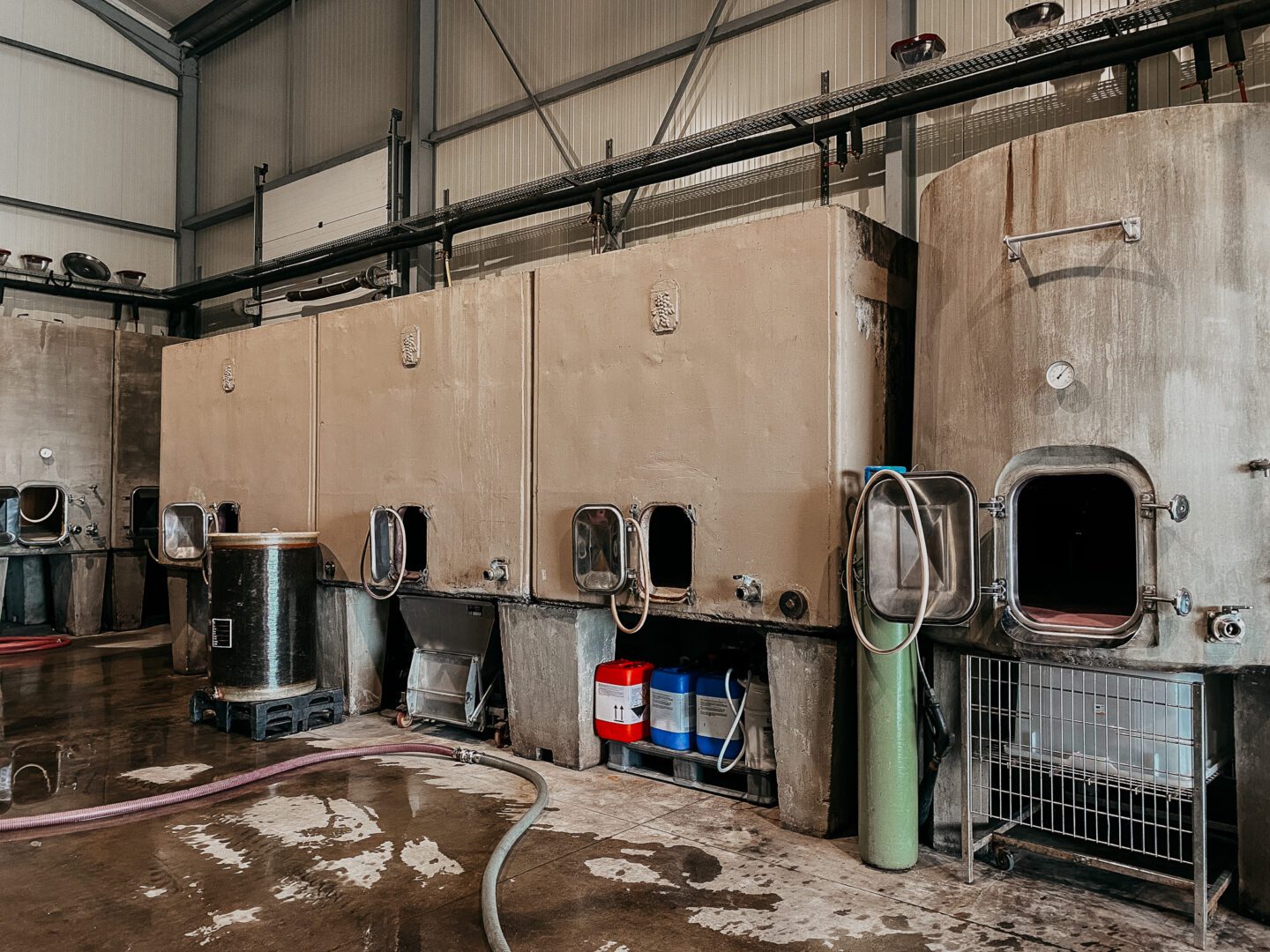
Coralie and Damien are both experienced in the science and academics involved in winemaking, having both studied in Bordeaux, and brought this knowledge to the fore when they took over Damien’s family estate, with a twist. They decided early on to stop the use of all chemicals in the vineyard and work purely organically. Coralie explained the experimentation which they undertook:
‘In the cellar we were working together and we were experimenting [with] a lot of things like “okay, we learn that after 10 days or 20 or 2 weeks of fermentation we are supposed to react and do things”. And the first years when we had the fermentation carry on to spring times or summer times we were really afraid of what happens but the nature is well made so we discovered that the fermentation can stop but sometimes it just slows down and starts again and you just need to leave it. Just need to be confident. Of course, not forgetting everything with our studying background, we know the scientific part, we know plenty of things but we decided just to watch, to be careful and to help to have a good fermentation so really the only thing we add to our wines [are] sulphites. But we also had a time in our career that we tried to work without any sulphites. And we know that it’s not what we want to do, we do not have the right climate, we do not have the right elements and the way we are working we put a little bit of sulphites but not zero. So winemaking is really a science, it’s not doing nothing, of course, it’s really watching, tasting and being able to react if there is something wrong. And we have the knowledge to do that.’
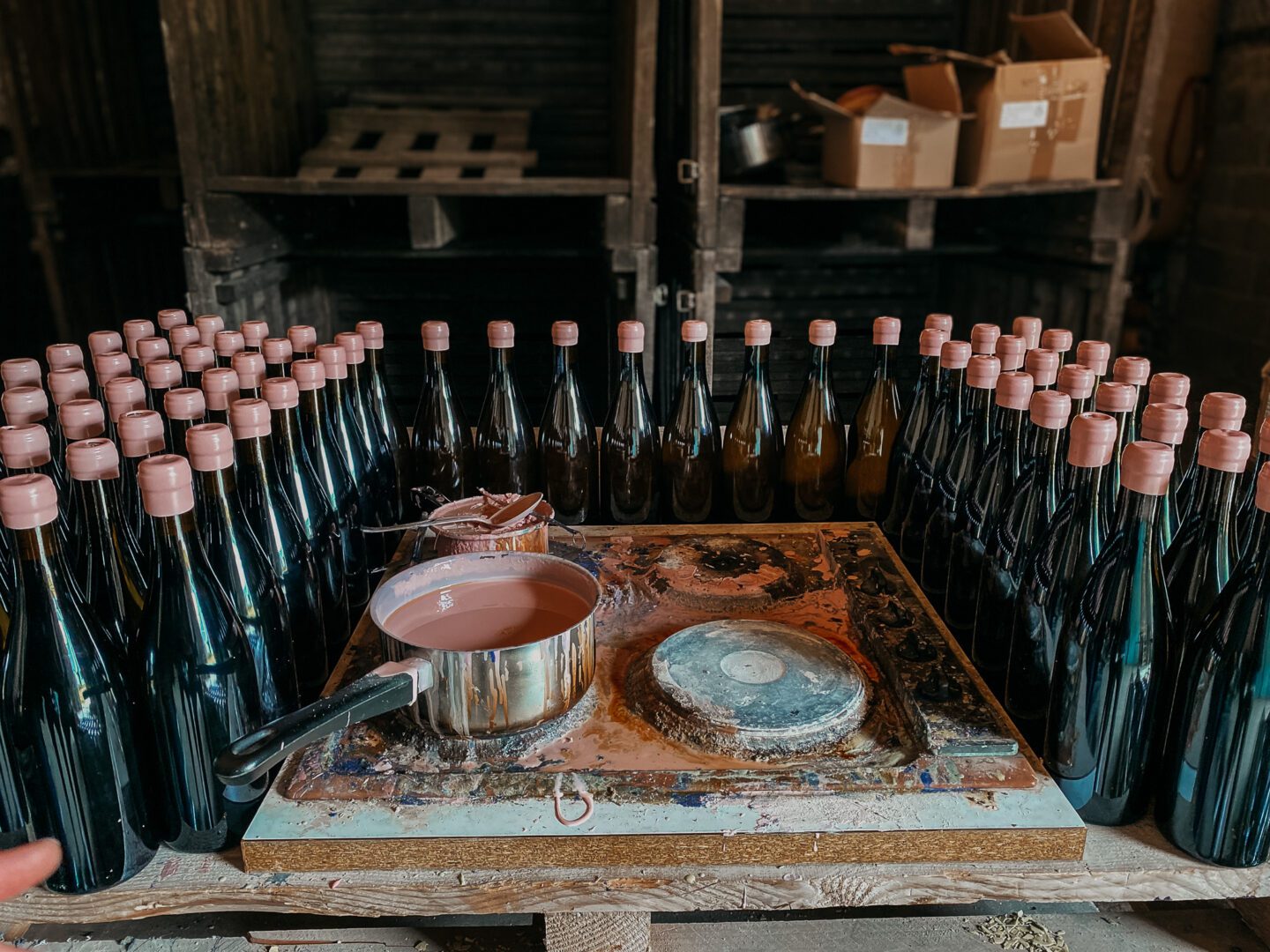
A question I was very interested in hearing the answer to was, with such a diverse and experimental process, did Coralie and Damien know what to expect from each new vintage, and try to shape it, or did they let the flavors appear naturally? The answer: a mixture of both. Once the grapes arrive at the cellar, and are pressed, then they have an idea of the style of the vintage: the level of sugar, the acidity, the structure, the aromas, whether it is very ripe or under ripe etc. What makes the wines from La Grange Tiphaine so exciting, year upon year, is that there is no way to make the same one twice, and they don’t try to.
Being a family estate, La Grange Tiphaine has a rich history and has been passed down through the generations. Now, they are combining the old with the new to make something really special:
‘The old vines [are] really the history of the estate so I think that and Damien’s grandfather and father were not rich enough to pull out all the vines and replant [them] so they kept working with that and so we inherited these old vines and we are so lucky to have those old vines. And those old vines make very delicate and precise red wine and because there were a lot of vines missing, we replanted some new old vines so we selected a few old vines, we grafted [them] and we planted [them]. So now it starts to be a nice block and it makes very interesting wines… very complex. I used to call this wine ‘iron fist in a velvet glove’ so you can really feel that will go very far in the tasting, very far in the long palate, very precise on the aromas.’
Climate change is something that is affecting almost every industry on the planet, and winemaking is no different. I was interested in hearing whether Coralie had experienced any impact of it and the short answer is yes. She used Cabernet Franc grapes as an example which, when she first arrived in Amboise 15-20 years ago, they would always have to use in blends as the grapes weren’t ripe enough during harvesting. However now, they are able to make 100% Cab Franc wine. This may seem like a positive effect, but my takeaway was surprise, and almost a little fear, at how so much can change within the harvest in just a couple of decades. Coralie mentions several times during our discussion the importance of biodynamie, which despite weather conditions, provides a balance in the wines and the vineyard as a whole. The result is harvesting grapes with nice tannins, good color, good flavors, ripe aromas and a touch of acidity and saltiness.
Talking to Coralie, it becomes clear how passionate she is not only about La Grange Tiphaine, but about viniculture as a whole. I wanted to know more and it was best put in her own words:
‘It’s the elements, the nature, it’s also the people, it’s also the wine, the product itself but in fact, first when I started, I liked it because it was so diverse. I was able to go to the vineyard, to label the bottles, to prepare orders, to ship the orders, to meet the people, to do tastings and that’s what I like. It’s really to have different [responsibilities] and to be able to be not only the person working in the cellar, or carrying cases, I am able to do everything and I like to do everything and I really love to be able to talk about my passion to you and people who have never touched wine, to kids, to old people who have different taste than me.
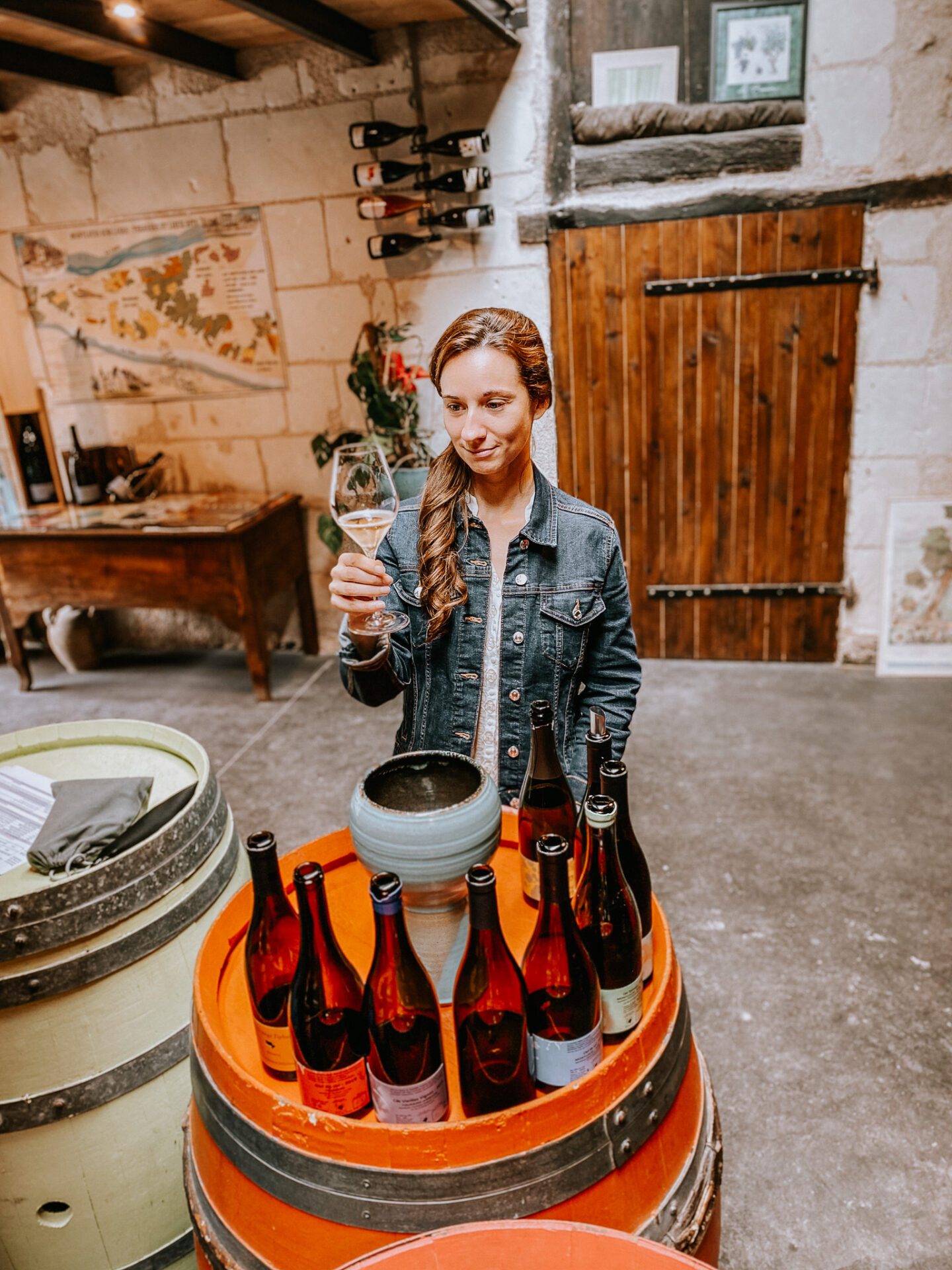
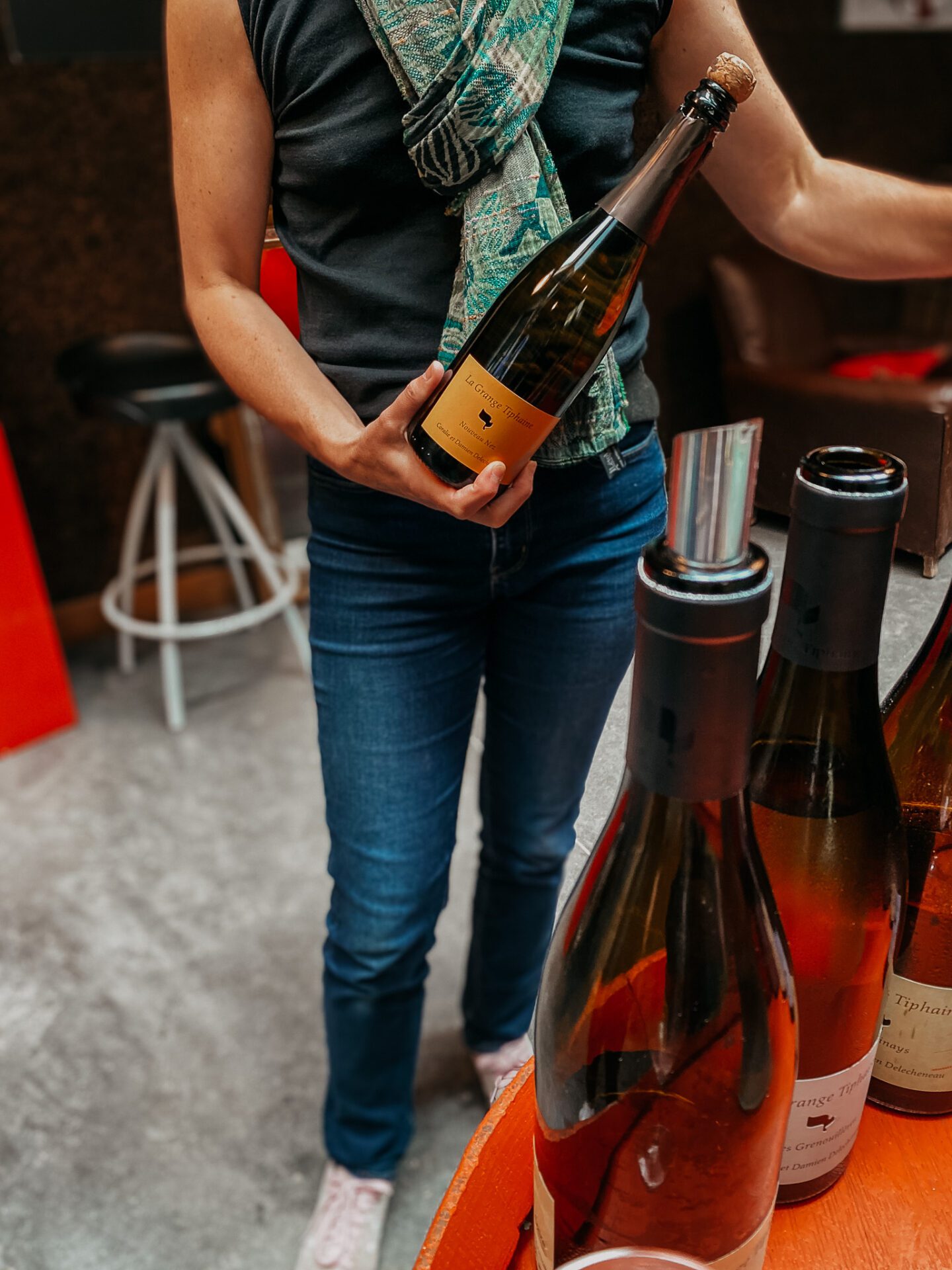
The Touraine is a very diverse area, with notable history, art, food, wine and an amazing landscape, with the Loire river and rolling, gentle hills. There is a beautiful softness to this place, not just with the wines but the energy of it as a whole. Going back to the food, local wines always pair incredibly with local foods, and the Touraine is no different. The local cuisine’s main staples are goat’s cheese and lots of meat (mainly pork) and the saltiness in the wines, mentioned earlier, make a perfect accompaniment.
Planning a trip to the Loire Valley? Make sure to check out this article “Vouvray! Rediscovering scholar flow with Cathy Henton”
One last question I had for Coralie, which I like to ask most wine experts when I meet them, is what advice she had for people who want to work in, or learn more about, wine:
‘You will never stop learning, there is no end. When you start, you want to know more and more and you dig and you swim and sometimes you can drown but it’s a real way of life, a real exercise for the memory as well, it is very technical as well. It’s not only drinking, it’s about history and tradition and when you start learning about wine you never stop. You never stop and you will never know everything. And what I like, again, is really that it is a subject that you can talk about with everybody.’
I am so grateful to have met Coralie Delecheneau and be shown around La Grange Tiphaine’s vineyards and buildings and, of course, to taste their delicious wines. I encourage all readers to try and get hold of these wines (information to be found below) and taste for yourselves how incredible and diverse they are!